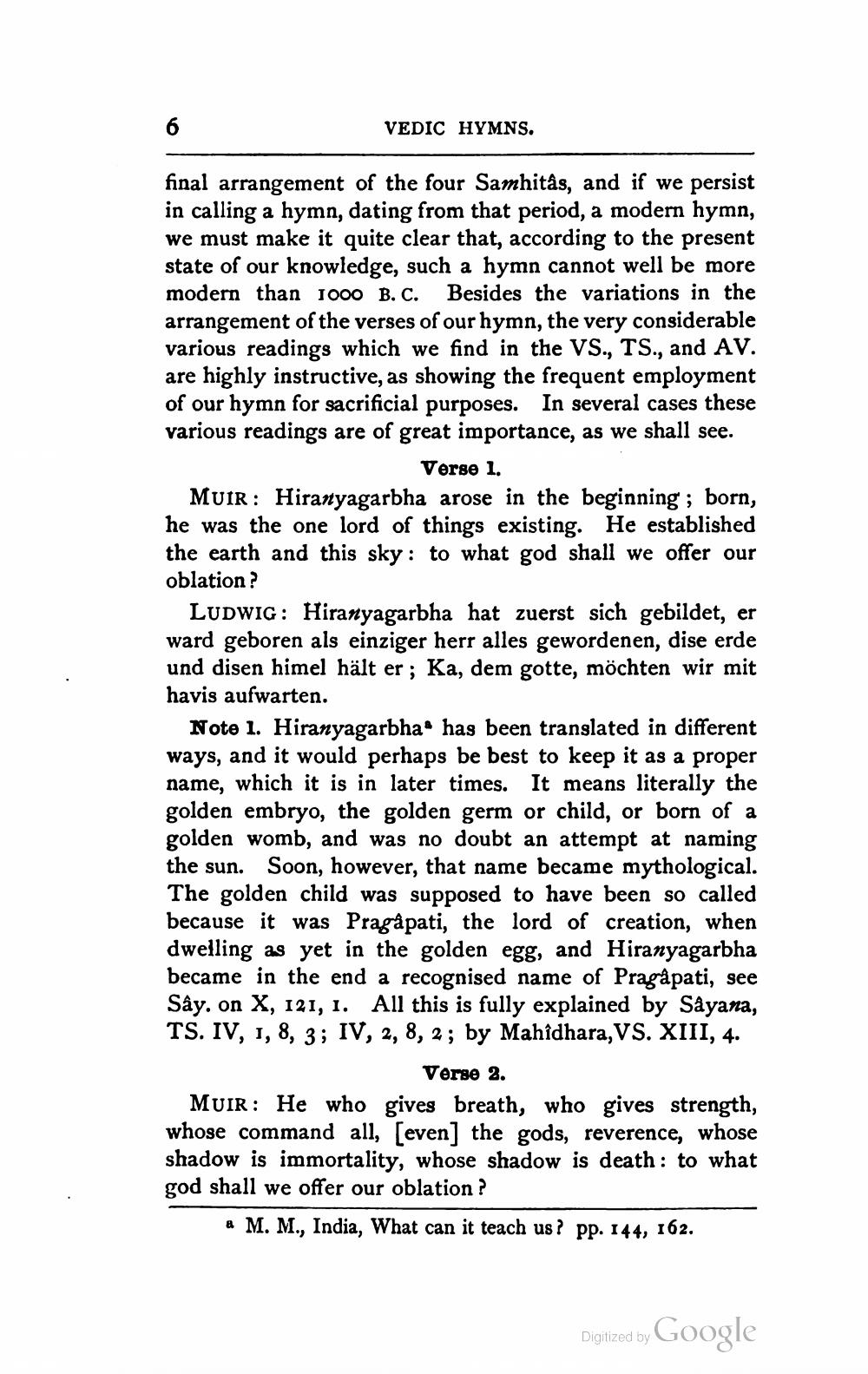________________
VEDIC HYMNS.
final arrangement of the four Samhitas, and if we persist in calling a hymn, dating from that period, a modern hymn, we must make it quite clear that, according to the present state of our knowledge, such a hymn cannot well be more modern than 1000 B.C. Besides the variations in the arrangement of the verses of our hymn, the very considerable various readings which we find in the VS., TS., and AV. are highly instructive, as showing the frequent employment of our hymn for sacrificial purposes. In several cases these various readings are of great importance, as we shall see.
Verse 1. MUIR: Hiranyagarbha arose in the beginning ; born, he was the one lord of things existing. He established the earth and this sky: to what god shall we offer our oblation?
LUDWIG: Hiranyagarbha hat zuerst sich gebildet, er ward geboren als einziger herr alles gewordenen, dise erde und disen himel hält er; Ka, dem gotte, möchten wir mit havis aufwarten.
Note 1. Hiranyagarbhao has been translated in different ways, and it would perhaps be best to keep it as a proper name, which it is in later times. It means literally the golden embryo, the golden germ or child, or born of a golden womb, and was no doubt an attempt at naming the sun. Soon, however, that name became mythological. The golden child was supposed to have been so called because it was Pragàpati, the lord of creation, when dwelling as yet in the golden egg, and Hiranyagarbha became in the end a recognised name of Pragàpati, see Sây. on X, 121, 1. All this is fully explained by Sayana, TS. IV, 1, 8, 3; IV, 2, 8, 2; by Mahîdhara, VS. XIII, 4.
Төгөө 2. MUIR: He who gives breath, who gives strength, whose command all, [even] the gods, reverence, whose shadow is immortality, whose shadow is death: to what god shall we offer our oblation?
a M. M., India, What can it teach us? pp. 144, 162.
Digized by Google




